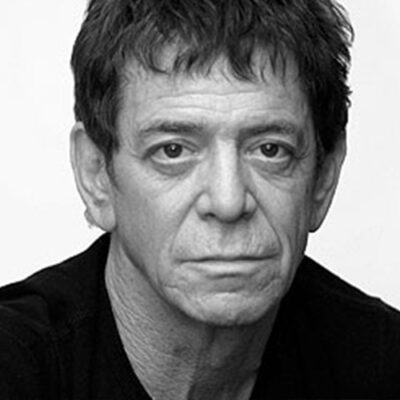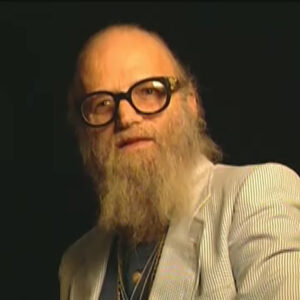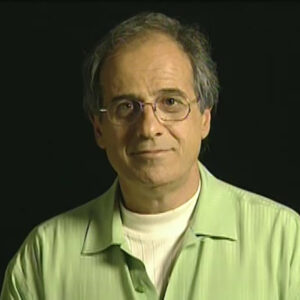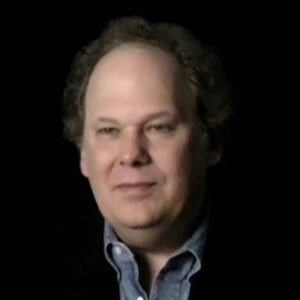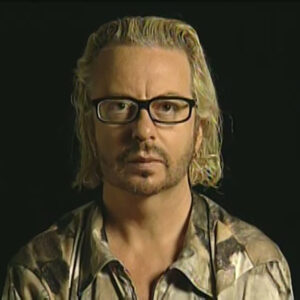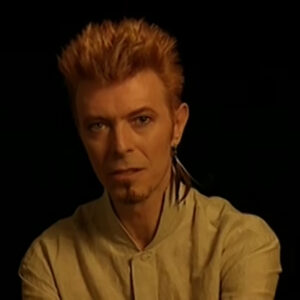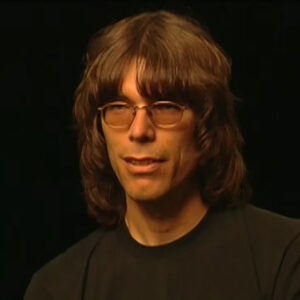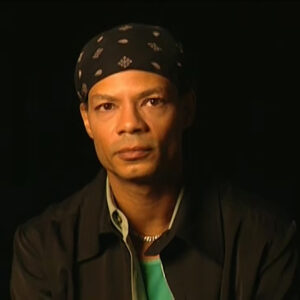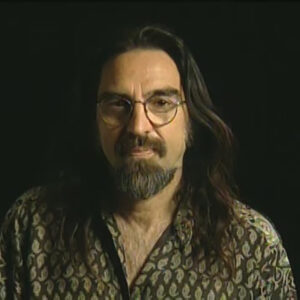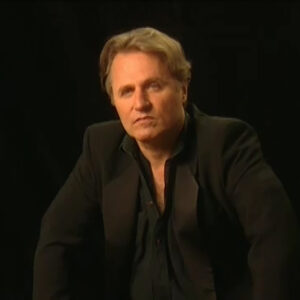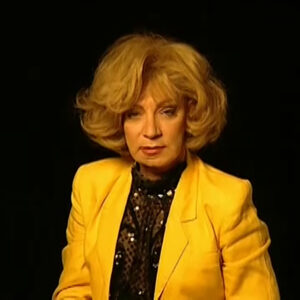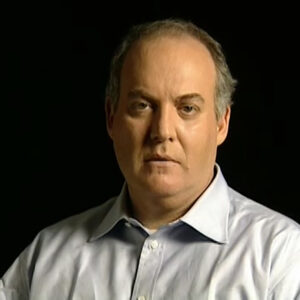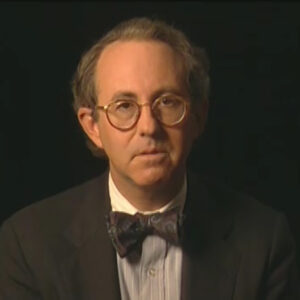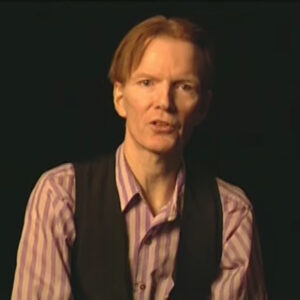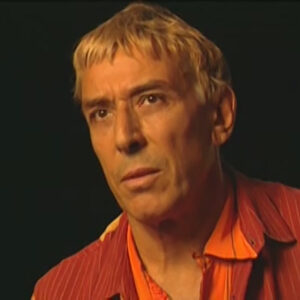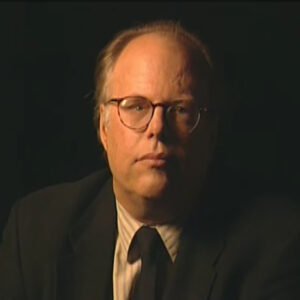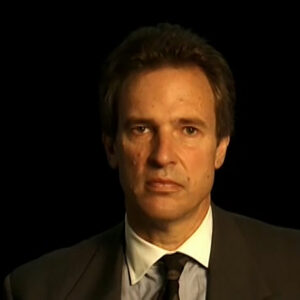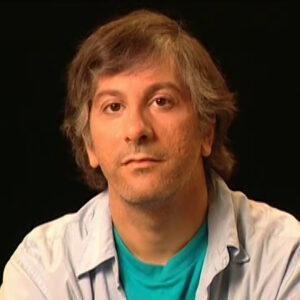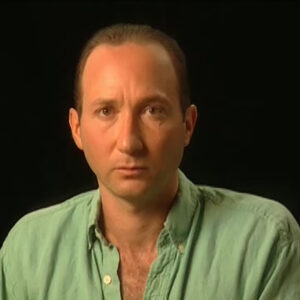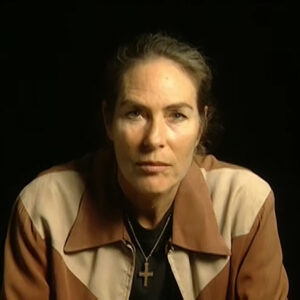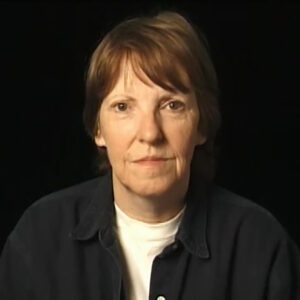Jonas Mekas: In the between nineteen sixty and 70, I ran film makers in my tech and film makers co-operative and those were very busy places for the 60s. New York art scene. And that, of course, included film makers and and musicians and painters, etc.. And so and that’s where I I met everybody, including Lou Reed. And it was at Park Main Center of the activity was for one for Park Avenue, south corner of Twenty Eighth Street, which was my loft. And everybody every evening everybody was there from Salvador Dali to Andy Warhol to to just name name anybody. It was a very busy, exciting period.
Interviewer: That was great. OK. Can you tell us about the underground film scene in the summer of sixty five through the summer of sixty six? So this is sort of the period of the exploding plastic inevitable. And also, I think before that, the Velvets played in a context where you were involved. That right?
Jonas Mekas: Now, this scene. New York scene in 63, 64, 65. It was exploding. So during that time, I ran of a film maker, Cinematheque at fourth, I think 25 somewhere there, Lafayette Street. And that’s where Andy Warhol presented a lot of his films. And I ran in December, November of sixty five expanded arts festival. And that’s where I think Barbara Rubin brought for the first time I met Lou Reed and Cale. Now I have to say something about Barbara Rubin, because bottom row Rubin sname usually is is is like neglected in in in in reviews of the 60s that she was one of the seminal figures. Actually, it was Barbara Rubin who introduced me to Velvet Underground, Lou Reed. It was Barbara Rubin who introduced Lou and rather tunneling underground later to Andy Warhol. And Barbara Rubin was behind everything that was taking place during that period. She was very much vitit, very much in music, very much excited and like a mother of everything, always trying to help and push. That included Dylan. She was she practically nursed was the nurse, Dylan’s nurse after the motorcycle crash. And of course, it acknowledges that. So it was very active. And I was running a movie from Lafayette to 40 First Street in the middle of Times Square PRACTIC between 6th Avenue and 7th Avenue. And that’s where I ran films. And that’s where Barbara Rubin, brought the Lou and the group. And they were sort of experimenting, fooling around sometimes in background to some films and sometimes just playing there. That is where they there or a time out like period before they the appearance at the Dome took place. And that’s where and he my Barbara Rubin brought Andy said, you have to see them. You have to see you have to listen to them. And she introduced Andy to to do the. So that for us. And that’s what that death was in 60 late, sixty five and early. Sixty six.
Interviewer: And the Velvet’s actually perform background music for film. Four a.m. attack 65. The play dates are Jack Smith. Warhol Roman Standard Package. Is that right?
Jonas Mekas: Right. Because what Rubin organized a series of screenings where she projected very often film on top of one film on top of another film and and with with with music and in the back background. So the place, of course, was called Film Makers Cinematheque. Yes. Jack Smith was there and it was an on rise and piano helped set a lot of films. Oh, yes. We are recognized now as classic sort of had their first presentations with very excited audience seeing something for the first time.
Interviewer: Can you tell me if you remember saying that?
Jonas Mekas: Yeah, I guess I lean sort of forward so that they might maybe.
Interviewer: About performances, if you remember that. Can you tell us a bit about the films they performed music for these specific films, or what was the atmosphere, how many their audience was it, whether they like it?
Jonas Mekas: The theatre itself was sort of one step down level down and about 210 and some seats. And it was practically always filled. It was so, you know, I couldn’t do it. Get it. Two hundred ttr did fall today for something like that, but maybe it was, you know when something just comes into existence and everybody is excited about it. Oh it was way too often the place was full and everybody was excited but they felt their films. I do not exactly to call to what films. Velvet Underground or plastic. Inevitable, as you know, play it. But I would say, you know, that I know included my own films that, you know what, one would not even suspect the film The Brig. But to play tomorrow, Barbara Rubin projected them all with no sound. And you could not hear the sound of the film on the day that the music starts. What’s a lot of super impositions? It was just a huge collage and montage of images sound in the back ground. But then there was this energy. There was this energy in the music that I wrote into Village Voice that it was not like anything else. Like you could feel that there is something new in music coming into existence. New sounds, new energy. Later, of course, you it’s moved to the dawn. The lights came in, lights were not used. And maybe there were some maybe no time on forty first street. Mostly just the projector lights. But on the non Green Day all the other lights came in with the music and changing. And then of course something else. Nick, of course I had met New Quarter. They’re much, much, much prettier than in new. Nic, new crime motive, maybe follow through. Nic, call pockets, new crop up attack is what’s involved in a shooting. Cassavetes Shadows. It’s very I have very bad not bad memories, but it was something that Cassavetes made in 58, a masterpiece called Shadows. And then some friends came, including nuchal puppets like yours. We thought if he would shoot some scenes, it would make it more commercial. And he is shot for made perpetuated Cassavetes to shoot it. And he destroyed the film. But that’s something else. Now, his name was Nico Pataki. Then two years or three years, maybe around 60 for 60. He came to town and you called me, said, I’ll come and see me. And I’ll also come and meet my friend Nico. Nico, your new Kronick. I never asked him how. What did she accept? Was it her bought Bordon name? Nico. I still don’t know. It had no time to read the biography or he she adopted the name from Nico Pataki because she was singing in his bar in his cafe. And that’s when I met Nico and that’s when he wanted to meet Tandia and introduced him to Andy so that Nico and Pataki met Tandy or I think before Newcome at New.
Interviewer: Tell me about Andy Warhol and what other film makers thought. So give us a little feeling of the time with Andy. Very much in the swing of things with everyone else they just liked. What was that? What was the feeling.
Jonas Mekas: Of Lou? Lou Reed and ending on the end is the trail, you see. And this the factory was like huge psychiatrist couch in which everybody from everywhere came all the lost and sad soul send somebody or normal people. Mostly those who have some eye laws came in and he was always he said, yes, okay. Yes, yes, yes. He was like a good father who never said no. So everybody liked everybody felt very good there. Of course, you could say and do anything. And it’s just good because that was a.. And that is so that I think he’s say we know you know, in the newspapers you read that, you know, some jumped from the roofs and a bed without them would have jumped from the roofs anyway. But I think that he saved help a lot of people. It was his psychiatrist, psychiatrist anyway, so that it it was a kitchen with which brew everybody was allowed to express themselves and do so many think things came with boredom there came into existence because of these very permissive atmosphere. It was quite, quite amazing situation, really, the factory.
Interviewer: Can you talk a bit about Chelsea Girls the movie? Reed writes a song about that movie, and this is a film with two projectors and a history of maybe of that or how unique it was.
Jonas Mekas: Andy began with silent films like ran for a long time in time. Very slow, not more. But then humanity went into a sounder and when he went into town, he penned in the endHe had scenes, all those lost desperate souls in the factory. They day they he put them on on on in front of the camera. And now do what everyone or situations there. And and what what’s happened is that like every adult in the Voice in the Village Voice at that time, that that everybody says that. And even I said I wrote that in 10, 20 years. Everybody will be making films like this because it’s so easy, you know, just put people camera runs by itself. And he goes for hours and portraits of films. It did not happen. It did not happen. And why? Because he recorded it and they recorded that there, a world that is not like any other. And those films are like anthropological documents today of a certain sensibility. And they cannot be repeated, cannot be recreated, cannot be repeated. Same as Eisenstein’s films. Cannot be repeated through. But somebody else or Hitchcocks or any name, any great filmmaker, because it’s a very specific close up, almost reality. It’s like a document, a slice of a period. And that’s where, you know, you can watch those people, their conversations clashing. And and that’s where, you know, it was the world that you and I also felt like somehow that, you know, he was friends with everybody in there. And later moved today with Kansas City. What was it called? Max’s. Yes. And new wasn’t there. But he was, like, undecided. Lou was never real in them in there. And I kept Kansas, Max. Kansas City. He she he was very often on just side there, brooding, very brooding. You know, spent many hours with him. We did not have really much convincing Haitians because, you know, I’m a silent person now. She’s a silent, brooding person. I’m a his brooding self. I cannot tell much about, you know, what we discussed. But he was always there. He was always there.
Interviewer: On the streets. That would be one thing I you. The screen test that he did, which we’re going to use some of them in the film. Can you set the context for that? It looks to me just just how important those are today.
Jonas Mekas: Their screen tests, the series of screen tests, which I think go into like four one hundredths or something like that. Ah, ah, ah. The documents you walked into the factory and the camera was there. The vortex is there. Motorized border, the trend for two minutes, 45 seconds. And usually that linage or Mhlanga, Jerone, Mhlanga wasn’t there to watch as the chair set and look and do whatever they wanted. Stare and they can tons for two hours. Two minutes, 45 seconds. And later, of course, the instructions from. And it was always to project him slow or speed. So it runs to, what, three minutes and a half instead of 20. Right. Natural, naturalistic speed. Twenty four seconds frames per second. It runs much slower just then destroys their natural or natural enemies. And it then puts it in a much on a completely different plane out of the real context. It becomes a portrait. So those 400 or they are still not haven’t been seen exhibited. I think it’s a very unique treasury of the various personalities, not on the artists. You know, anybody who was passing them into town, coming to interview or are many students at MITERS coming suggests, you know, and take portraits for taking. It’s it’s a terrific choice.
Interviewer: Did you do a screen test?
Jonas Mekas: Yes. Yes.
Interviewer: That was yours. And, you.
Jonas Mekas: No, I mean, all that I am there was a book that Gerard Malanga prepared it. And in that book, maybe there are about 50 or 60 portraits. You can see my dad. That is one frame taken from the film. And you can see my my frame because usually that one frame represents quite true the what is in the rest. Because people did not move much around. So what you see in one frame model has changed and the expression changes. Some get impatient. Some begin to react to the camera. Yes, they pointed towards taking meals and. But all the portraits are now where they Warhol museum. Some are with Malanga understand.
Interviewer: OK, any other questions?
Jonas Mekas: Anything I can answer? Any question.
Interviewer: You didn’t. I would like to.
Interviewer 2: Do no music to talk. People have said that it’s has a rather cinematic quality to it.
Jonas Mekas: Is it? I think that if one would say that I mean, I, I have used some of the underground music as background for some of my films. Now it’s very easy to use it because their music is some of the early music. Even until later it goes, say, a light continuous certain plane against which light can make some background and then speech. Then you can put any images you you want with. There are occasional or or changes and some exciting moments that creates the rhythm there, which again goes with that. You can it goes very well with. Oh, not with narrative films but with any any serious of. Non narrative disconnected images. That is why at the dome. And he was always there. The dome in the in the back upstairs with three, four projectors, you know, throwing different images, sending what went very well with that music, that music somehow tie them all those images together.
Interviewer 2: What attracted Andy to film.
Jonas Mekas: It’s like this. I. I had a loft at four one for Park Avenue, your S. S that’s what Filmmakers Co-operative was and which keen filmmakers took over my loft. I was sleeping on my Moviola and debt to cover every night. They were projecting their new moon, new footage and everything, but they came and for months and months. And then one day somebody said, Today is Andy’s birthday. Come and meet Andy. Come on. Andy will be there soon, Andy. Andy will be there, you know. And I just said, I don’t know, Andy. So you don’t know Andy. He has been watching movies in your loft for months, sitting there on the floor. And you don’t know Andy. I know all kinds of people come to my office. I don’t know is. Of course, I went and I met Andy and I organized this guy was sitting on the floor and watching all those movies where Ron Rice and Jack Smith. This footage was just taken the day before and he was there. That was his schooling. He he was just learning. And then you decided one day that you will make movies also because he’d be became friends with all the filmmakers showing their footage here. And then that was his beginning. And I was running a grandma. She wanted to 2082 Gravity Arts shot this film screenings I had and Gramercy Arts Theater between Park and Lexington and 28. And he comes one day and sure, you want to you can have a new suit in front and be at the beginning of February program. I will bring you a little short film like two minutes and 45 with Project Slow Speed. And that was this series of kisses. So that was in 60, 364 somewhere there. And then later, you know, she came with to sleep, which premiered there. They’re not tired, but they said that nobody will stay for six hours. So I got to open it tight and put the chair. And I had seen the film before. And I can’t come back back an hour late. And he he has tape.
Interviewer: Are there any photographs of Andy time year?
Jonas Mekas: No. I wish somebody would have done that. Yes. Yes, very much I. Well, I was the one who introduced and then the Velvet Underground. Tell us about this. I don’t know how much it was the first three. I was the first sort of public appearance of it. That’s how it’s taken off the Velvet Underground. And it was the yearly psychiatrists convention, which was someone in there for, I think, met a Portakabin your Maddis song in the 40s. Forty Fifth Street, somewhat some big hotel. You’ve got to like under a 400, 500 psychiatrist there. And then you needed something special. And I know whose idea it was. It’s okay. And and it’s just his friends and music and then decided to do it. And then he asked me to introduce him and and Velvet Underground. And I did. And there is some pictures of it. I filmed the little bits of that occasion. And they did. Then they, of course, performed. And the longer I was strutting their idea. And everybody was very excited for that. Then did this. Then the second day, the head of the convention was beaming. There is a picture of a hand. So it’s a very happy occasion.
Interviewer: It was reviewed very unfavorably.
Interviewer 2: In the Social call.
Jonas Mekas: Yes, yes. Yes.
Interviewer: People there enjoyed it.
Jonas Mekas: Yes, they did. They are talking loud. They did enjoy it. But I think for them, maybe the press for the day when the press was out there following and the activities quite closely. And one of the reasons was that we refused that time. Now, if if the press a newspaper magazine calls everybody is very cooperative. They are not cooperative for myself or the filmmakers. Co-operative cinematography. If Time or the Life magazine called and wanted to see something, you have to pay. You have to pay me not cooperating. And that excited him very much. So in any case, they were there and I just did. Whether or not he was dead today meeting to talk the situation like parties. And it is this strange music to hear. I don’t remember. Maybe I read those columns myth. I don’t remember what they said to columnists, but it was an exciting period. It it it so many things happened there and we did not pay. We did not take any of it seriously. You know, we just did and we did not documented because it’s just like we are just doing it. If we would have known that it would be so much known later. Inevitably it will be making television programs. Somehow it would have documented it. But it was life. It was life. And you don’t you don’t think that’s been your life. You don’t record it. You don’t talk. Document real life. I would just stay with us. So we left.
Interviewer 2: Just a couple of wine somewhere.
Interviewer: Can you say a couple words for us? Just say Lou Reed,.
Jonas Mekas: Lou Reed.
Interviewer: And say it again a couple times.
Jonas Mekas: Lou Reed. Lou Reed. Lou Reed.
Interviewer: And Piero Heliczer
Jonas Mekas: Piero Heliczer, Piero Heliczer, etc.. Piero. Heliczer.
Interviewer: And John Cassavetes.
Jonas Mekas: John Cassavetes. John Cassavetes, John Cassavetes. I think they say John Cassavetes.
Interviewer: And Max’s Kansas City.
Jonas Mekas: Matt. What stadium, Max? Max is with the Post Max’s Kansas City. Max. Max is Max’s Kansas City.

